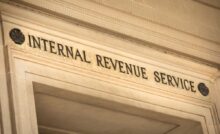IRS Issues ERTC Frequently Asked Questions


Over the last year the IRS has issued several warnings about the number of ineligible Employee Retention Tax Credit (ERTC) claims being submitted. A central issue has been the large amount of misinformation about the program being spread by promoters and marketing companies. Business owners are led to believe that every business is entitled to receive the credit without any discussion about eligibility criteria or what happens if the credit is improperly awarded. What makes the situation worse are the aggressive radio, email and online marketing tactics used. Unfortunately, these bad actors pray on those who have little information about the credit resulting in ineligible claims.
To combat this and apply more stringent review procedures, last month the IRS announced an ERTC processing moratorium. Although the agency will continue to process existing claims any new ones submitted will be delayed until December 31st, or later. At the same time, there will be several new programs introduced which will allow those who believe a claim was improperly submitted to withdraw it without consequence. Beyond this, there was a list of frequently asked questions about the program designed to help taxpayers evaluate eligibility. To help clients, prospects, and others, Wilson Lewis has provided a summary of the key details below.
ERTC Eligibility Rules
A common misconception that aggressive marketers and promoters like to propagate is that every business is eligible to receive the ERTC. This is false. Eligibility for the program depends on specific facts and circumstances about the business and operational practices during the pandemic. Specifically, the credit is based on the qualified wages paid between March 13, 2020, and December 31, 2021. However, to qualify an employer must have been:
- Subjected to a full or partial government ordered shutdown that limited commerce, travel, or group meetings due to COVID-19, during 2020 or the first three quarters of 2021.
- Experienced a significant decline in gross receipts during 2020 or the first three quarters of 2021.
- Qualified as a recovery start up business in the third or fourth quarter of 2021.
Supply Chain Disruptions
Another misconception is that a business which experienced a supply chain disruption is automatically eligible to claim the credit. This is false as a supply chain issue itself does not create eligibility. There is a narrow, limited exception, allowing certain businesses not affected by a government shutdown, but their suppliers were, to claim the credit. However, this only applies to those who could not operate without the supplier’s products.
To claim the credit under these circumstances, the business must not only have a copy of the supplier’s governmental order, but must show:
- The government order caused the supplier to cease business.
- It was not possible to obtain similar goods or materials elsewhere (regardless of cost).
- The result was a partial or full suspension of the business.
Claiming the credit using this method of eligibility is difficult and only applies in very narrow circumstances.
Taxpayers should be cautious about anyone that asserts qualification based on supply chain issues without asking for specific information about operations.
Improperly Claimed Credits
ERTC promoters will regularly assert that any company qualifies for the credit. Unfortunately, this is simply not true and there are consequences. Many are unaware that improperly claimed credits must be repaid and are often subject to penalties and interest.
Identifying Scammers
Bad actors will often convince business owners that have no chance of qualifying for the credit to apply while charging thousands of dollars in fees. Warnings signs of potential scammers include:
- Aggressive marketing tactics which include messaging about an “easy application process”.
- Assertions the promoters can determine eligibility within minutes.
- Large upfront fees to claim the credit.
- Refusal by the prepare to sign the claim being filed. This leaves all the exposure and risk with the business submitting the claim.
- Assertions a business qualifies without having information about the company’s tax situation.
- Inaccurate claims the taxpayer has nothing to lose when filing for the credit.
In some cases, promoters may simply lie about eligibility requirements, or fail to provide detailed information on the calculations used to determine eligibility. There is also a risk that the credit could be used as a ploy to steal the taxpayer’s identity or take a cut of improperly received funds.
Contact Us
The Employee Retention Tax Credit is an incentive program designed to reward those who continued to pay employees during the hardest days of the pandemic. There are specific eligibility rules which cannot be circumvented. If you have questions about the information outlined above or need assistance reviewing a previous claim, Wilson Lewis can help. For additional information call 770-476-1004 or click here to contact us. We look forward to speaking with you soon.
Recent Posts
Relief on Tap for Georgia Taxpayers
Earlier this month Georgia Governor Brian Kemp signed two important parcels of legislation into law.…
Preparing for an ERISA Audit
Preparing for an ERISA plan audit often starts with understanding what the audit looks for…
Auto Dealership Benchmarking
Atlanta car dealerships are constantly searching for ways to increase new and used car sales.…
Navigating New Auto Tariffs: What Dealerships Need to Know
On April 3, 2025, a new 25% tariff on imported vehicles went into effect, bringing…
Leukemia & Lymphoma Society Fundraiser
I want you to imagine hearing the three words, “You have cancer.” Sadly, this has…
Wilson Lewis Named a Regional Leader by Accounting Today
Atlanta accounting and advisory firm Wilson Lewis was honored this month as one the top…


